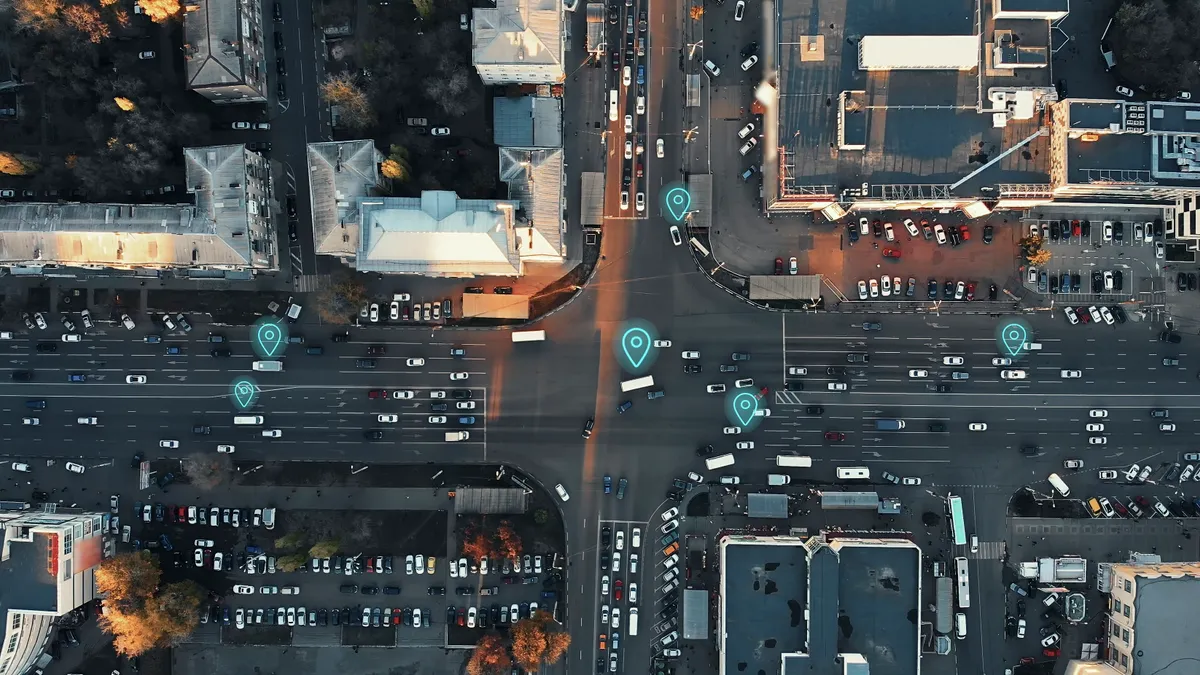The emergence of connected and autonomous vehicles will boost supply chain performance and improve the safety and environmental impact of trucking, according to a study from the Center for Advanced Multimodal Mobility Solutions and Education at the University of North Carolina at Charlotte. But they could create new challenges for local governments, especially as they go driverless, said one infrastructure leader.
“Given that transportation networks play a key role in a supply chain system in terms of its performance and cost, [connected and autonomous vehicles] will ultimately change many aspects of a supply chain system,” the report, published in August, stated.
Driverless delivery vehicles can get perishable foods to market faster, improve traffic safety, and cut greenhouse gas emissions, according to the researchers. Saving even a day in transportation significantly extends the shelf life of produce such as tomatoes and raspberries, said Tim Sylvester, founder and CEO of Integrated Roadways, a digital infrastructure provider that works with cities on road design.
Moreover, connected and autonomous vehicles improve road safety and ease traffic by using artificial intelligence to optimize speeds, cutting travel time and fuel use, the study said.
However, there are several unresolved liability issues related to driverless delivery when such vehicles are involved in accidents, according to the report.
In addition, automated delivery will require roadway redesign, as automation would create different problems for deliveries to grocery stores and restaurants, where employees can unpack it, than for households, which typically want groceries sent to their door, Sylvester said.
“In downtown areas, there is usually not a defined delivery area for restaurant vendors,” he said. “This becomes an issue when a beer truck shows up and parks for 30 or 45 minutes” and blocks traffic. It's not like DoorDash or other food delivery services, where a small vehicle stays a minute or two, Sylvester added.
“If a truck is automated, who are you going to get out and shout at?” Sylvester said.
He said local governments could create designated lane segments for delivery vehicles to use during off-peak hours, just as taxi cabs use taxi stands, to prevent them from blocking traffic.
Correction: Tim Sylvester was misidentified in the subtitle of a previous version of this article. He is the founder and CEO of Integrated Roadways.











